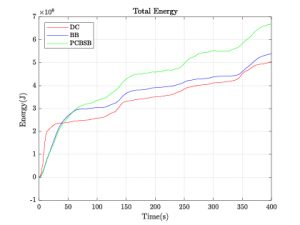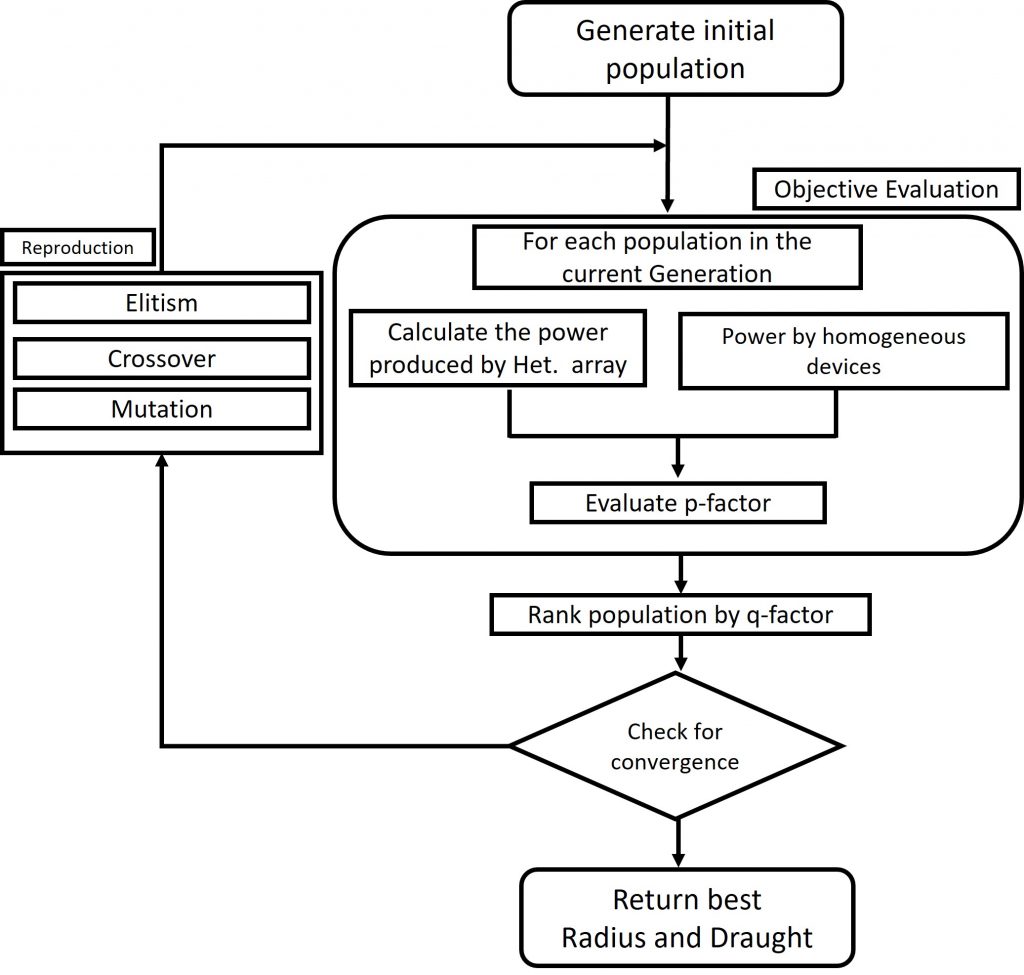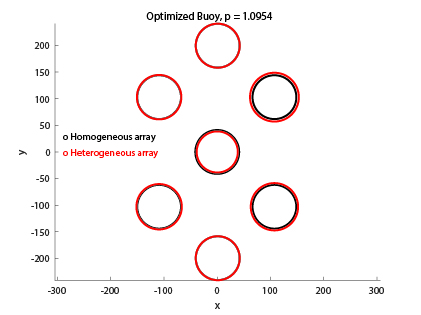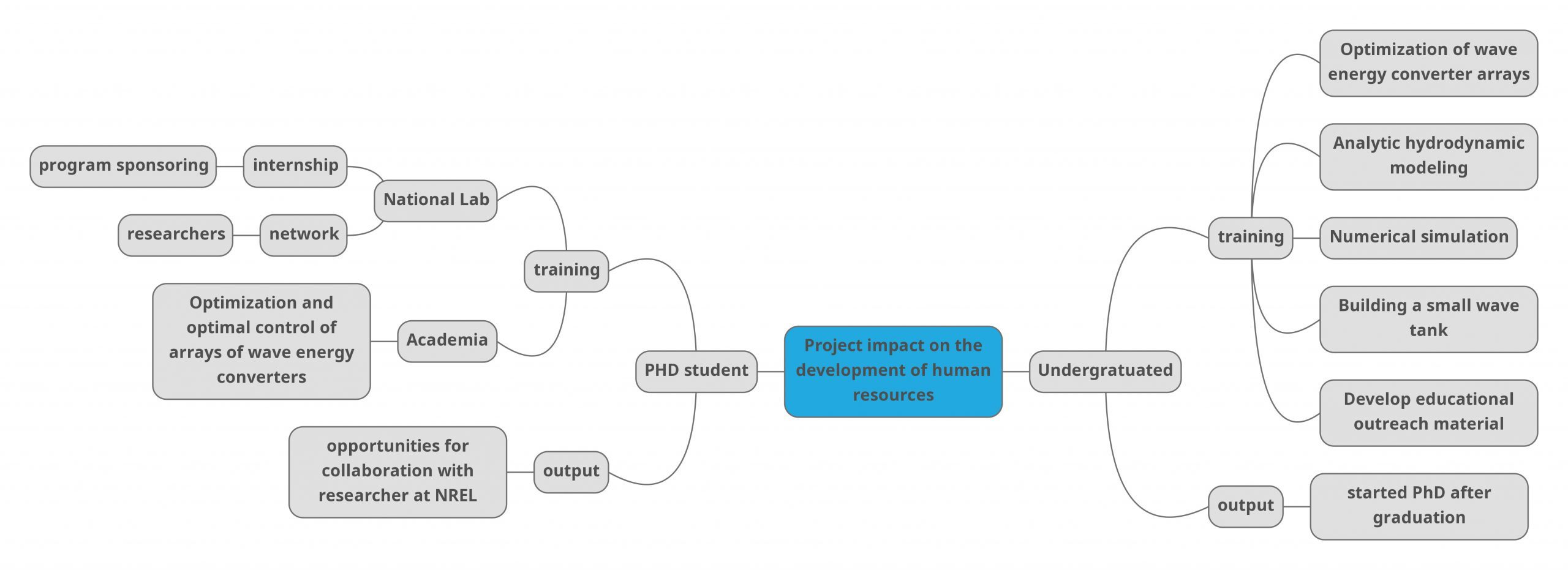Project Title: U.S.-Ireland R&D Partnership: Control Co-Design of Heterogeneous Arrays of Wave Energy Converters
Sponsor: National Science Foundation
The major goal of the project is to investigate the impact of Control Co-Design on Heterogeneous Arrays of Wave Energy Converters (WECs), through collaboration among three research teams in Iowa State University, USA, Queen’s University Belfast, North Ireland, and Maynooth University, Ireland.
The objectives of the project are:
- Develop analytically optimal constrained control that maximizes the harvested energy from an array of wave energy converters, subject to constraints on the reactive power available to each device in the array (Iowa State University Team)
- Develop numerical optimal constrained control that maximizes the harvested energy from an array of wave energy converters, subject to constraints on the reactive power available to each device in the array (Maynooth University Team)
- Optimize the shape of each device in the WECs array, leveraging the nonlinear hydrodynamics that are otherwise neglected (Iowa State University Team and Maynooth University Team)
- Leverage the hydrodynamic coupling between between devices in the array through control and optimization of shape and array layout (Iowa State University Team and Maynooth University Team)
- Verification using experimental Testing. (Queen’s University Belfast Team)
Project Members:
Prof. Ossama Abdelkhalik, Iowa State University
Habeebullah Abdulkadir, Iowa State University
Prof. John Vincent Ringwood, Maynooth University
Oliver Mason, Maynooth University
Dr. Kumars Mahmoodi, Maynooth University
Dr. Paul Lamont-Kane, Queen’s University Belfast
Research Outcomes:
- Developed optimal constrained control for an array of wave energy converters (WECs). An optimal control which maximizes the harvested energy while constraining the power flow direction was derived analytically for an array of WEC devices. Low fidelity numerical simulations were conducted comparing the proposed control to Optimal Reactive Loading (ORL) control.

- Investigated how devices of varying dimensions can affect the overall performance of the WEC array; the array containing devices of different sizes is referred to as a heterogeneous array in this work. The heterogeneity is achieved by varying the radius and draught of cylindrical buoys. performance of the heterogeneous array is evaluated versus a homogeneous array containing the same number of devices in an identical layout, assuming the summation of volumes of all devices is the same for both the heterogeneous and the homogeneous arrays. Heterogeneous arrays were found to perform better than homogeneous arrays.


Publications:
- Ossama Abdelkhalik and Habeebullah Abdulkadir, “Optimal Control of Wave Energy Converters,” OCEANS 2021: San Diego – Porto, 2021, pp. 1-5. Link
- Habeebullah Abdulkadir and Ossama Abdelkhalik. “Power Constrained Optimal Control of Wave Energy Converters.” Proceedings of the 14th IFAC Conference on Control Applications in Marine Systems, Robotics, and Vehicles, (CAMS 2022), Technical University of Denmark – Kongens Lyngby, Denmark, September 14-16, 2022. Link
- Habeebullah Abdulkadir and Ossama Abdelkhalik. “Optimal Constrained Control of Wave Energy Converter Arrays.” Proceedings of the 2022 American Control Conference, Atlanta, Georgia, USA, June 6, 2022. Link
- Jain, J.K., Mason, O., Said, H.A. and Ringwood, J.V. Limiting reactive power flow peaks in wave energy systems, Proc. IFAC Conf. on Control Applications in Marine Systems (CAMS), Lyngby, Denmark, Sept. 2022, pp 427-432.
- Jain, J.K., Mason, O., Pena-Sanchez, Y. and Ringwood, J.V. Optimal control of wave energy devices with nonlinear reactive power constraints, Proc. 18th IFAC Workshop on Control Applications of Optimization (CAO 2022), Gif-sur-Yvette, France, July 2022.

Acknowledgment
This material is based upon work supported by the National Science Foundation under Grant Number 2048413
Disclaimer
Any opinions, findings, and conclusions or recommendations expressed in this material are those of the author(s) and do not necessarily reflect the views of the National Science Foundation.